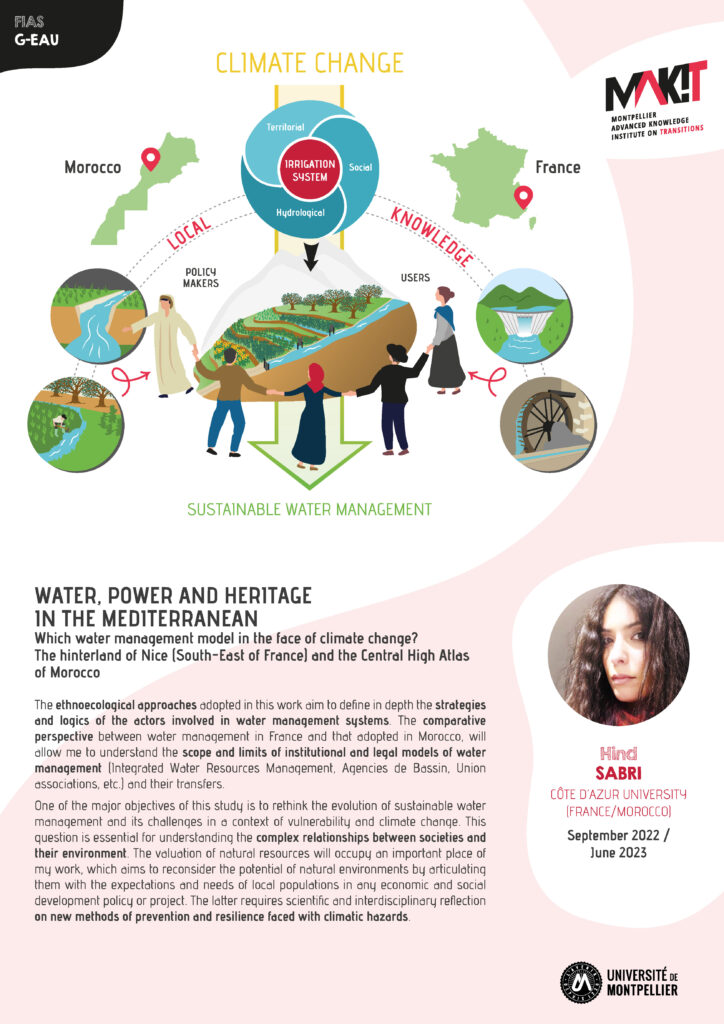Hind Sabri
Hind Sabri holds a PhD in Anthropology from the Nice Sophia Antipolis University on water heritage and object of conflict and sharing in the Amizmiz Valley-Western High Atlas of Morocco. Her attraction for the human and social sciences and her desire to explore issues affecting societies in the Mediterranean basin, and specifically the question of water, allowed her to integrate several research groups at the Jacques Berque Center in Rabat as guest researcher and as a laureate of the mobility program of the Foundation Maison de Sciences de l’Homme de Paris and the Arab Council for Social Sciences of Lebanon.
Dr. Sabri’s research on irrigation water management systems in the valleys of the hinterland of Nice resulted in the publication of her book The Communities of Vésubie, State, Water and Local Communities: Anthropological Study, published in 2018 by Harmattan editions. This work received two awards from the Academic Association for Historical and Sociological Research in the Field of Energy, and from the University Côte d’Azur.
This research focuses on the Water, Power and Heritage triptych in two Mediterranean areas: the South-East of France (the Roya and Tinée valleys) and an arid region in southern Morocco: the Ourika valley in the Haouz from Marrakech.
The ethnoecological approaches adopted in this work aim to define in depth the strategies and logics of the actors involved in water management systems. The comparative approach between water management in France and that adopted in Morocco, will allow us to understand the scope and limits of institutional and legal models of water management (Integrated Water Resources Management, Agencies de Bassin, Union associations, etc.) and their transfers.
One of the major objectives of this study is to rethink the evolution of sustainable water management and its challenges in a context of vulnerability and climate change. This question is essential for understanding the complex relationships between societies and the environment. The valuation of natural resources will occupy an important place in this work, which aims to reconsider the potential of natural environments by articulating them with the expectations and needs of local populations in any economic and social development policy or project. The latter requires scientific and interdisciplinary reflection on new methods of prevention and resilience risks due to climatic hazards.
